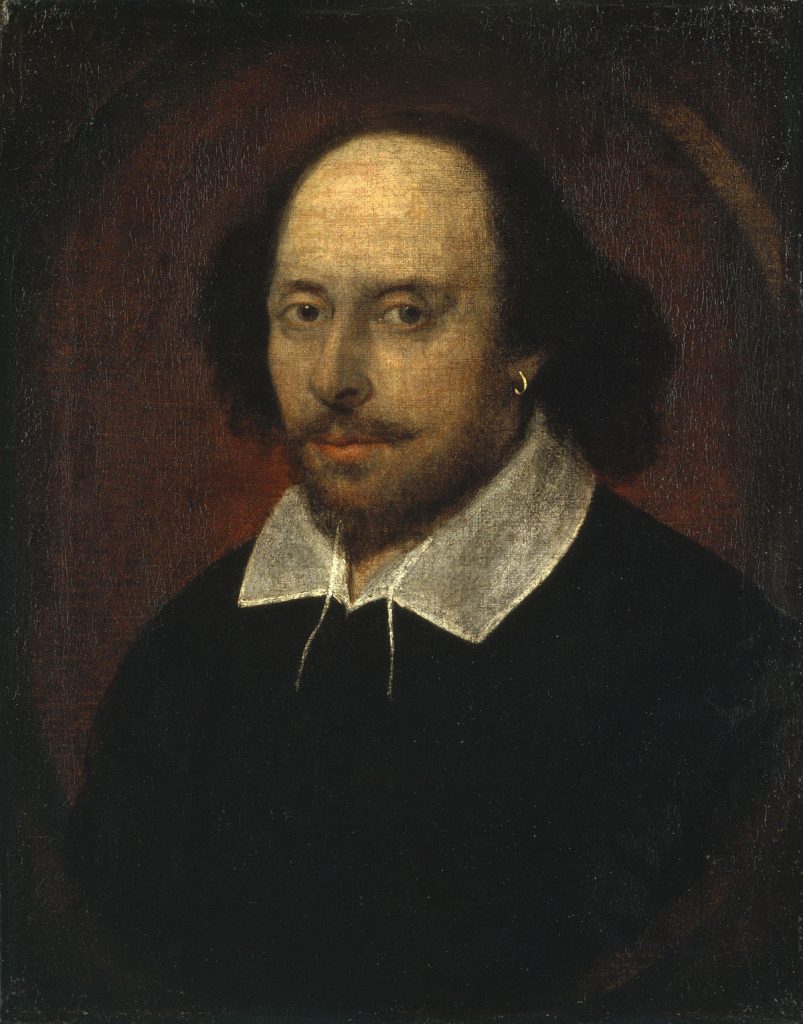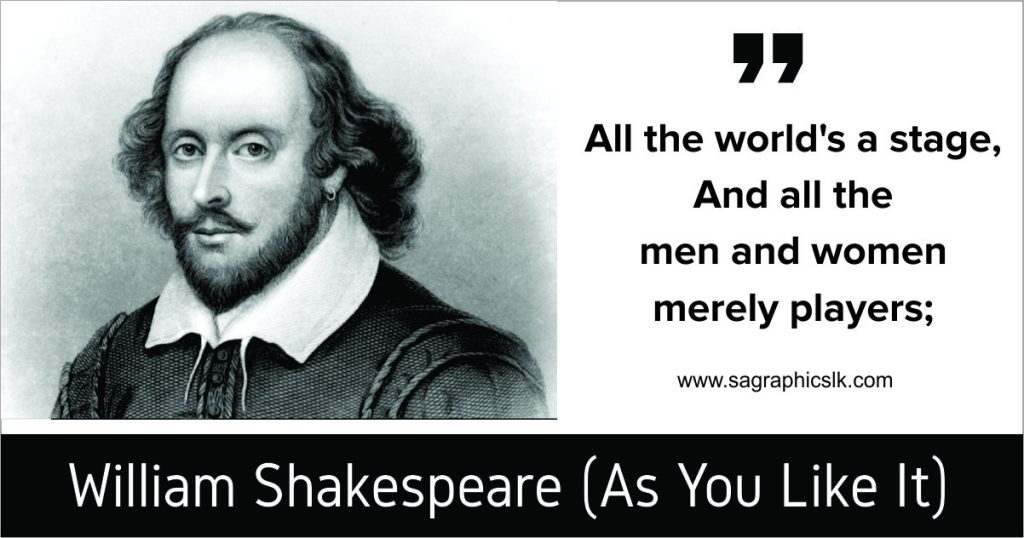“All the world’s a stage, and all the men and women merely players” is the phrase that begins the most famous monologue from William Shakespeare’s comedy As You Like It ( Act II, Scene VII, Line 139), The Seven Ages of Man, spoken by the melancholy Jaques. The speech compares the world to a stage and life to a play and catalogues the seven stages of a man’s life, sometimes referred to as the seven ages of man.” All the world’s a stage, and all the men and women merely players”, Shakespeare saw the theater as a metaphor for life.
Related Post: THE 10 BEST William Shakespeare Quotes

William Shakespeare (1564-1616)
William Shakespeare is widely regarded as the greatest writer in the English language and the world’s pre-eminent dramatist. He is often called England’s national poet and the “Bard of Avon”. His extant works consist of some 39 plays, 154 sonnets, and three long narrative poems. His plays have been translated into every major living language and are performed more often than those of any other playwright. Shakespeare remains undoubtedly the most influential writer in the English language, and his works continue to be studied and reinterpreted.
All the world’s a stage: The Seven Ages Of Man
“All the world’s a stage” is an excerpt from William Shakespeare’s well-loved play, As You Like It. The monologue is twenty-eight lines long, and it is spoken by the melancholy Jaques.
All the world’s a stage,
And all the men and women merely players;
They have their exits and their entrances,
And one man in his time plays many parts,
His acts being seven ages. At first, the infant,
Mewling and puking in the nurse’s arms.
Then the whining schoolboy, with his satchel
And shining morning face, creeping like snail
Unwillingly to school. And then the lover,
Sighing like furnace, with a woeful ballad
Made to his mistress’ eyebrow. Then a soldier,
Full of strange oaths and bearded like the pard,
Jealous in honor, sudden and quick in quarrel,
Seeking the bubble reputation Even in the cannon’s mouth. And then the justice,
In fair round belly with good capon lined,
With eyes severe and beard of formal cut,
Full of wise saws and modern instances;
And so he plays his part. The sixth age shifts
Into the lean and slippered pantaloon,
With spectacles on nose and pouch on side;
His youthful hose, well saved, a world too wide
For his shrunk shank, and his big manly voice,
Turning again toward childish treble, pipes
And whistles in his sound. Last scene of all,
That ends this strange eventful history,
Is second childishness and mere oblivion,
Sans teeth, sans eyes, sans taste, sans everything.
Summary of “All the world’s a stage”
Jacques begins “All the world’s a stage” by asserting the fact that life is like a stage on which “men and women merely” play roles. They play different parts throughout their lives, as the speaker is now. Throughout this monologue, the speaker spends time going through the seven ages of man. One starts in infancy, moves through childhood, and enters the best part of their life when they’re a lover, soldier, and judge.
Later, they lose control of their senses and eventually can’t take care of themselves. Each of these phases in life is so dramatically different that it can be perceived as “playing a different part.” Shakespeare uses the monologue in As You Like It to compare life to a stage. His speaker, Jacques, is suggesting that life is a stage, and men and women are players who take on different roles throughout their lives.

Affiliate Disclosure: As an Amazon Associate, I earn from qualifying purchases. This blog post may contain other affiliate links as well, by which I earn commissions at no extra cost to you.

